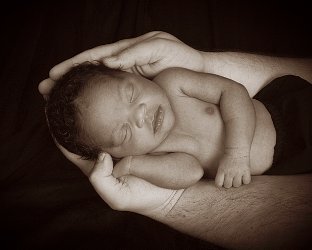23
Aug
 As I cruise around the world wide web, a large part of my time is spent perusing adoption blogs and articles. It is a great way to get educated and connected. You can read about other’s adoption stories and even become "friends" with folks you might not otherwise meet. But when it comes to adoptions and our children, how much is too much to share?
As I cruise around the world wide web, a large part of my time is spent perusing adoption blogs and articles. It is a great way to get educated and connected. You can read about other’s adoption stories and even become "friends" with folks you might not otherwise meet. But when it comes to adoptions and our children, how much is too much to share?As an adoptive parent (or just a parent, period) I know how hard it is to not want to brag about your kids constantly. Who doesn’t? First smile, first giggle, even first poop – we want to share it all. Just how much should we be sharing though? Sit back and think for a minute about what things you might not want anyone to know about you when you were a child. Do you really want all of your friends and their friends to know when you first used the potty? Or when you first wet you pants? These are silly pretty innocuous things, but with adoption there is even more that can be inadvertently harmful to share regarding our children and their story.
When you adopt a child, no matter their age, their story began way before you ever became involved. Even if you adopt a newborn, there are areas of their life that took place before you ever met them. Their mother has a story, their father has a story, their siblings have a story; all of these pieces make up the intricate puzzle that is your child’s life story. For instance, the circumstances surrounding your child’s conception are really not details you may want to share with the community at large. Do you think your own parents discuss openly how you were conceived? Or the circumstances surrounding it (were they married or unmarried, were they dating, was it a one-night-stand)? These are all things you wouldn’t dream of letting or wanting your parents to talk about, but they are things that I see openly discussed or alluded to when it comes to adoption.

Another example that comes readily to mind is drug or alcohol use. It is often viewed as okay to ask an adoptive parent if his or her child’s first mother used any harmful substances while pregnant. Would you ever think of volunteering that information if you were the one who were pregnant? Of course you wouldn’t. So please do not assume that it is okay to share that information about your child’s first mother. Aside from this being a violation of her privacy, it also can set your child up for assumptions to be made about him or her. If he or she has a behavior problem? Well, it must be because his mother drank while pregnant. If she has a hard time adjusting to school? That must be because her mom smoked marijuana during the first trimester. As parents we don’t want anyone to think our children are not capable of something for any reason. Let’s not give others a reason to think less of our kids.
Lastly, remember that your child’s story is just that – their story. You do not own your child, nor do we own their personal details. We want to love, nurture and cherish them, and a big part of that begins with allowing them the privacy to which they are entitled. We want them to hear the details of how they came to our family from us, not from others. Be careful what you share, even with family members. Think about how you want your children to learn about the circumstances surrounding their adoption. Do you want someone else to tell them or would you want it to come directly from you? As our children’s parents we want them to feel safe and secure. It is our job to protect them from things that may harm them physically or emotionally. Details about their first family and adoption are best coming from you. Your child trusts you and loves you. Sharing this vital information with them directly inside of your special relationship is one way to protect them from misinformation that others may provide.
Adoption is a private matter. Even if we want to educate others, let’s not do so at the expense of our children’s privacy. Keeping information within the confines of your family is the best way to ensure that your child, and his or her birth family, are protected.
This article written by one of MLJ Adoptions’ Outreach Coordinators is reposted with permission
